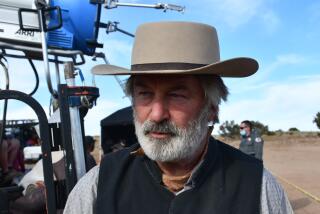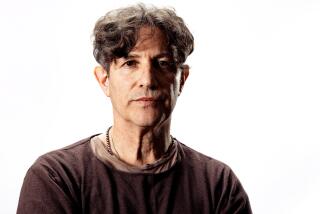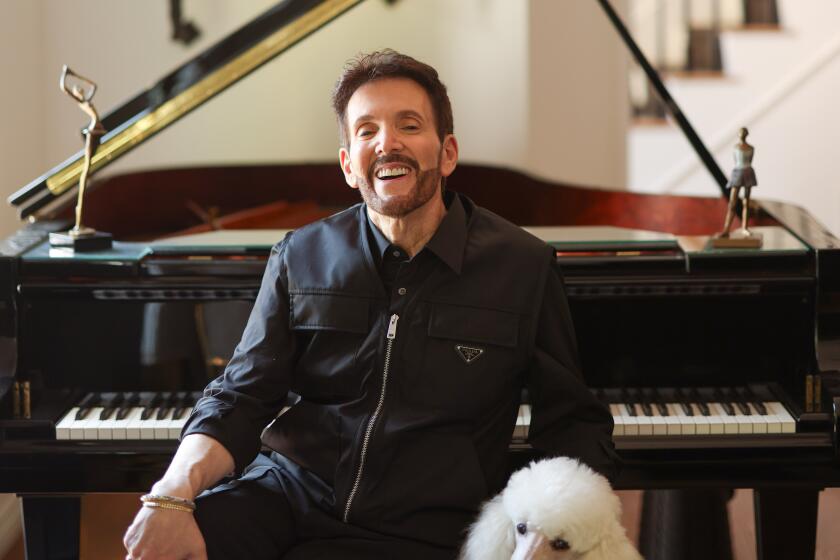âFeatures From Berlinâ at Goethe Institute
âFeatures from Berlin,â composed of four films of the past decade, will screen at 7 p.m. Wednesday and Thursday at the Goethe Institute, 8501 Wilshire Blvd., as part of an ongoing tribute to the city on the 750th anniversary of its founding.
Rudolf Thomeâs âBerlin Chamissoplatzâ (1981), screening Wednesday, runs contrary to every expectation you could have about an affair between a 43-year-old architect (Hanns Zischler), appointed to formulate a plan to revitalize the cityâs once-elegant Kreuzberg district, and a 24-year-old sociology student (Sabine Bach), involved in defending rentersâ rights.
Instead of a tempestuous romance between two people from opposite political poles, Thome presents us with a highly sensual mood piece, accompanied by a bluesy sax-and-bass score, that is much in the manner of Antonioni. These two people have an astonishing amount of time on their hands, and neither seems all that concerned about preserving one of the few areas of Berlin relatively undamaged by World War II--the studentâs concerns are more economic than aesthetic.
Yet, just as âBerlin Chamissoplatzâ seems to be becoming a study in indolence, Thome catches us short with an abrupt, jolting finish that gives meaning to all that has gone before.
Playing with it is Thomas Braschâs âDominoâ (1982), which captures the glitter of West Berlin during a snowy Christmas season in finely graded black-and-white. It stars diminutive, large-eyed Katharina Thalbach as a dedicated actress who becomes caught up in a complex psychological drama when she agrees to act for a formidable, legendary stage director (Bernhard Wicki, himself a famous director).
Herbert Ballmannâs âA Berlin Love Storyâ (1984), which was unavailable for preview and screens Thursday, has been described as a Lubitsch-like romantic comedy (based on an actual incident) involving a Swiss chef (Christian Kohlund) at his countryâs embassy in East Berlin and a young East German secretary (Ursela Monn) who dreams of visiting the Kurfuerstendamm, West Berlinâs sleek, lively main stem.
The second feature is Uwe Friessnerâs âThe End of the Rainbowâ (1979), perhaps the strongest film in the series. It is a stunning, deeply disturbing portrait of a cocky 18-year-old kid (played by Thomas Kufahl, who seems to be living his part) struggling to survive on the streets of West Berlin.
At the point we meet Jimmi, he is giving up hustling to make a stab at getting a job while receiving shelter at a student commune. Long-haired, tight-jeaned and foul-mouthed, Jimmi is cynical and rebellious yet sometimes tender and always vulnerable. He is a tragic figure in that he is all too aware that the only work available to him will be the most menial and lowest-paying, yet he cannot conceive a way of bettering himself.
This shattering, uncompromising feature debut film won the German Critics Prize in 1980. Note: The Goethe Institute will join with the Filmforum in presenting an afternoon of films by the West German experimental film maker Christoph Janetzko at the Wallenboyd Center at 2 p.m. Sunday. Janetzko will attend. (213) 854-0993.
Although its preview was marred and truncated by technical problems, âShot Down,â which screens today only at 8 p.m. at UCLAâs Melnitz Theater, is clearly an innovative and provocative film. It was directed by Andrew Worsdale and written by âRick Shaw,â a pseudonym for the South African theater and film collective to which Worsdale belongs.
A comic, jagged nightmare of a movie, it centers on a young film maker (Robert Colman), who becomes involved with an underground political cabaret. Local references and expressions, plus its own deliberately chaotic style, make âShot Downâ hard to follow, but it lays bare the guilt, frustration and paranoia of the young, white South African psyche. (213) 825-2581.
The Academy of Motion Picture Arts and Sciencesâ Contemporary Documentary Series continues Tuesday at 8 p.m. in Melnitz Theater with Pierre Sauvageâs âWeapons of the Spirit,â his remarkable study of a French village which saved the lives of some 5,000 Jews, and Bengt von zur Mehlenâs âThe Liberation of Auschwitz,â which draws upon the never-before-released footage taken by Soviet military cameramen.
More to Read
Only good movies
Get the Indie Focus newsletter, Mark Olsen's weekly guide to the world of cinema.
You may occasionally receive promotional content from the Los Angeles Times.










